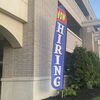5 economists forecast the year ahead
Every year, Mainebiz asks five prominent Maine economists to give us their predictions for the upcoming year. While it's hard to see over the edge of an extended fiscal cliff, our panel did its best to forecast what's in store for the next year in Maine. This year's panel of experts is Charles Colgan, professor of public policy and management, USM's Muskie School of Public Service; Jonathan Reisman, associate professor of economics and public policy, University of Maine Machias; Amanda Rector, Maine state economist; William Strauss, chief economist, Maine Pellet Fuels Association; and Charles Lawton, chief economist, Planning Decisions Inc. Their overall outlook: There will be very slow progress that remains vulnerable as fiscal cliff and sequestration decisions are made.
What's in store for Maine's economy next year?
Colgan: With fiscal cliff cuts, Maine will lose another 5,000+ jobs and be below the bottom of the recession. If not, we should see Maine join national growth, but at the back of the pack in 2013. Real growth would not occur until 2014. Optimistically, we could get back one-third of the jobs lost by the end of 2013.
Reisman: Debt, denial and very slow and uneven growth, mostly in southern Maine, with the 2nd congressional district running on fumes and inertia. A recession as a consequence of tax increases and spending cuts is very likely, unless investors' animal spirits are reinvigorated by efforts to reduce the deficit.
Rector: Assuming that the automatic spending cuts and tax increases do not take effect as scheduled, Maine's economy should see some modest improvement over 2012.
Strauss: The economy will grow very modestly. Private sector growth will barely offset the contraction in government payrolls.
Lawton: The south will benefit from a recovering housing market and its consequent benefits for the construction industry. The north will suffer from emigration of working age population and cuts in transfer payments for retirement and health care and the growing fiscal burden of local schools.
What do the election results mean for Maine's economy?
Colgan: The same people who have been unable to resolve the fiscal policy crisis for the past two years are still in charge. 2013 will mostly be another year trying to avoid disaster rather than making any solid progress on relevant policies.
Reisman: Tax increases for everybody; military spending cuts and layoffs at Bath Iron Works; a huge fight over MaineCare spending between Gov. Paul LePage, the Democratic legislative majority, U.S. Rep. Chellie Pingree and the Obama administration. We'll see moves toward the green nanny state; a retreat from the daddy state favored by some Republicans; a small boomlet in marriage nuptials; continued high energy prices; record sales of anti-depressants to conservatives; record sales of Allen's Coffee Brandy across Maine.
Rector: The election results mean both sides of the aisle will have to work together. Work force development and education are issues that need solutions supported by both parties.
Strauss: Maine is disproportionally dependent on federal money — receiving about $1.89 from the federal government for each dollar of federal taxes paid — and the current administration is more likely to support existing levels of federal support to the states. Until Maine demographic trends improve and jobs are created, the health of Maine's economy is, in part, tied to federal support.
Lawton: Stronger support for Kittery Shipyard and BIW with seniority of House Democrats and greater fiscal pressure on state budgets because of cutbacks in Medicare and other social programs. The beginning of entitlement reform will reduce transfer payments to Maine and thus reduce consumer spending below what it would otherwise be.
What are the chances of another recession?
Colgan: 3 in 10 as of Dec. 1, 2012. This number changes weekly.
Reisman: 70%. The ongoing European debt crisis and our own deficit and debt reckoning will push the country into recession. Contractionary fiscal policy combined with liquidity trap hampered monetary policies mean the day of reckoning is likely here.
Rector: The chances of recession hinge on the “fiscal cliff” issue. If the bulk of the spending cuts and tax increases are delayed or modified as to minimize their effect in the near term, another recession is far less likely to occur next year. Since “slim to none” isn’t really a percentage, I’ll go with 2%. There’s always the chance that something unforeseen happens (and there’s still a bit of uncertainty in the first few months of the year around the sequester and the debt ceiling), but the way things are looking now, I don’t really see a recession happening in 2013.
Strauss: Maine is unusually vulnerable to fossil fuel price volatility. About 70% of Maine households use heating oil. Of those 70% of homes, at $3.75/gallon, the average home spends about 12% of its gross income on heating oil. The poorest 10% of Mainers spend nearly 45% of their gross income on heating their homes. Most of the money spent on heating oil leaves the regional economy. Therefore, for every $1 dollar increase in heating oil prices Maine losses about 21,000 jobs. Until we lower our petroleum dependency, we are uniquely exposed to the risk of an oil shock recession. We agree with Moody’s Analytics that overall the state has about a 35% probability of recession in the next six months. This is at about the 80th percentile for all states (the mean probability of recession is 32.8% with North Dakota the lowest at 25%).
Lawton: Nationally, one in five. For Maine, the slower than average employment growth will continue regardless of the status of a “formal” recession.
How will rollout of the Affordable Care Act affect Maine?
Colgan: Since the governor has elected not to participate in the two most important elements that states have to deal with, the federal government will take care of implementation and Maine will wait for another election to decide whether the state will take a larger role.
Reisman: The ACA's maintenance-of-effort requirements mean that efforts to scale back insurance eligibility from 1 in 4 Mainers today back toward the 1 in 5 participants that Gov. Baldacci inherited will likely not be allowed, unless Chief Justice Roberts surprises us again. LePage will not allow unpaid MaineCare hospital debt to again violate the Constitution's requirement for a balanced budget as it did during Baldacci's second term. The Democrats will resist cutting spending elsewhere and Republicans will hopefully resist being tax collectors for the welfare state. So I expect debt, denial and a constitutional crisis.
Rector: There is still a lot of uncertainty around what the ACA will mean for Maine businesses and residents when many of the major provisions take effect in 2014. People and businesses will spend a lot of time this next year figuring out how to comply with the law — many businesses are concerned about triggering the employer mandate at the 50 full-time employee threshold. If they don't know how their related costs will play out, firms near that threshold may decide they'll be better off below it, which could slow employment growth in the state.
Strauss: The U.S. is handicapped in the global marketplace due to the lack of universal health care. The U.S. also has the highest spending per capita on health care but is nowhere near the top of the list in outcomes. Policy that frees businesses from health care costs, promotes a healthier work force, and gets health care inflation under control will enhance the U.S. and Maine's ability to compete in the global markets.
Lawton: It will increase health care costs and continue to be an impediment to employment growth as employers wait to see how insurance rates increase and how the penalties for failure to provide employee coverage compare to the cost of coverage. Hospitals and health care providers will wait to see how controls on payments for Medicare and Medicaid restrict revenue, further limiting employment growth. There will likely be a continued evolution toward a two-tiered system as providers limit or cease accepting new Medicare and Medicaid patients and move to concierge private pay systems.
What's your forecast for state job growth?
Colgan: Wage and salary employment up 0.5% over 2012. Total employment up 1.1%.
Reisman: Very modest, if any, growth. With a recession likely, Maine will be fortunate not to lose jobs next year.
Rector: Maine should see some employment growth next year, assuming the national economy does not enter a fiscal cliff-induced recession. However, the growth is likely to be weak — less than 1% (about 6,000 jobs). At this rate, it will still be several years before Maine reaches pre-recession employment levels.
Strauss: Maine will experience employment growth of about 0.8% in 2013. This will be about equal to the New England average. Maine is expected to be equal in employment growth to Massachusetts and well behind New Hampshire (1.2%). This would be a significant improvement from Maine's 2011 employment performance, which was no growth, and its 2012 performance, which has been 0.2% growth.
Lawton: Net job growth will be slightly positive, less than a thousand, as additions in construction and retail are offset by continued declines in state and local government and manufacturing and growth in health care slows.
For the housing market?
Colgan: New housing permits up 20%; existing housing sales up 14%; median price essentially unchanged.
Reisman: Some improvement as a consequence of pent-up demand and foreclosure inventory clearing. Southern and coastal Maine will see the largest gains, while the interior lags.
Rector: The housing market should continue to improve, provided mortgage rates stay low and the economy stays out of recession. Both home sales and home prices have increased recently and those trends should continue. Maine's lengthy foreclosure process has destablized the housing market, though, and both the foreclosure and mortgage delinquency rates will likely remain above pre-recession levels for some time to come.
Strauss: Home prices are trending up, so existing home turnover should increase if income growth can support purchase decisions. Maine is also heavily dependent on tourism and with the recession waning we should expect to see a significant increase in new summer home and ski home sales.
Lawton: In the southern part of the state, housing will continue to expand as aging baby boomers in Maine and neighboring states downsize and as young urban professionals begin to start families and seek out safe communities with good schools and attractive amenities.
For the energy sector?
Colgan: I expect electricity sales in the Maine market to remain pretty much flat next year as they have been for several years. 2014 is the earliest there might be an increase in electricity production. Sales to NEPOOL may grow a little faster than Maine.
Reisman: Green crony capitalism will be in a death match with LePage. Green crony capitalism advocates and apparatchniks include some of our leading engineering and construction firms, the University of Maine system and the environmental left. LePage wants lower energy prices and less of a green nanny state. The environmental left wants higher energy prices and more of a green nanny state. The crony capitalists want to profit from enforcing green moralism on everybody.
Rector: Slow global economic growth means that demand for energy should be relatively weak next year, limiting any demand-driven price increases. There are any number of supply-side variables that could affect the price, though: instability in the Middle East, weather and renewable energy regulations, to name a few. The decrease in natural gas prices is a positive that could benefit both industry and consumers.
Strauss: Maine has the largest solar energy potential of any state. But it is not solar panels that will leverage this competitive advantage. The energy in wood, a very efficient solar battery, is captured from the sun. Maine can sustainably harvest nearly 20 million tons per year of wood. Sustainable means that the stock of trees is not reduced: we use the "interest" of new annual tree growth and do not deplete the forests. As the world's use of paper changes, the wood-to-energy sector will gradually become the dominate use of Maine's vast forest resource.
Lawton: Wind energy expansion will slow until extension of the tax credit is passed. More important will be the extension of natural gas pipelines in Maine and into distribution centers closer to Maine current centers. These investments will enable Maine to take advantage of the gas boom in Pennsylvania and New York. If the PUC is granted authority to enter into gas purchasing contracts, natural gas could become more widely available in Maine both for production of electricity and as a heating fuel. Savings compared to oil prices would free money in household budgets for other spending.
For consumer spending?
Colgan: Retail sales up 3.4% in nominal terms, 1% in real terms.
Reisman: Consumer spending will be flat as confidence continues to lag. Recession is likely to actually reduce it.
Rector: If tax hikes take effect, consumers will see a significant decline in take-home pay. This will limit their ability to spend without incurring new debt, something consumers have had less appetite for since the recession. If the U.S. economy sinks into another recession, consumers will be faced with more job cuts and reduced hours and wages, limiting consumer spending even further.
Strauss: Consumer spending growth will depend on wage growth. Workers are at a disadvantage in this recovery with respect to wage bargaining power. In 2007, the U.S. GDP was $1.33 trillion (in real 2005 dollars) and employment was 115.5 million. GDP declined during the recession and returned to a level of $1.33 trillion around Q3 2011. However, employment was only 109.4 million. In other words, we have figured out how to make the same level of output with about 6 million fewer workers. Job creation does not match economic growth. The excess supply of labor will keep wage growth and consumer spending flat.
Lawton: Consumer spending will continue to accelerate as pent-up demand for automobiles and homes begins to be expressed. In addition, continued recovery of the national economy bodes well for tourism spending in 2013. This will be tempered by the slow employment growth in Maine, the movement of more people into the retirement age group and likely slow growth or even cuts in entitlement spending.
Where will Maine see the biggest gains?
Colgan: Health care continues to lead job growth, though at a slower pace than in the past. Professional and business services will also grow, but at a pace way behind the rest of the U.S.
Reisman: Gains is a relative term in an anemic economy. Sectors that will show modest growth or at least not shrink include: health care, tourism, non-government and nonprofit organizations advocating redistribution of income and wealth.
Rector: With mortgage rates remaining low and employment creeping up, the housing market and retail sales could continue to improve, especially if the uncertainty over the fiscal cliff is eliminated and businesses renew hiring. Maine will see more reforms to the tax code mandated by the Legislature take effect, including a restructuring of the individual income tax brackets that eliminates taxes for people earning the least and lowers the top tax rate. Some of these changes could help soften the effects of the potential tax increases from a resolution of (or a failure to resolve) the fiscal cliff for some taxpayers.
Strauss: Maine continues to rely heavily on the tourism sector, which contributes about one in five dollars to the gross state product. Visitor spending sustains an estimated 140,000 jobs in Maine and the state spends about $3.50 per capita on marketing the state as a destination. Among states competing for visitor dollars, the weighted average spending by New Hampshire, Vermont and Massachusetts suggests that, to be on par, Maine should spend about $7 per capita. Tax revenues from more visitor spending would offset the increased promotion costs. The tourism industry has the potential to add tens of thousands of jobs in Maine.
Lawton: In small, entrepreneurial enterprises, often sole proprietors. Maine's attractive environment and city life will continue to encourage immigration of young professionals from more expensive cities. In addition, larger enterprises seeking skilled employees (Unum, Idexx, WEX, Auto Europe, advertising agencies, research laboratories, private universities) will grow if they can find qualified job seekers.
What will be Maine's biggest challenges?
Colgan: Maine is not well positioned in the industries that will see the most job growth, except for health care.
Reisman: Our aging population, the entitlement state and a steady decline in economic freedom. We are on the road to Greece.
Rector: National and global growth is likely to remain weak next year, making it hard for Maine's economy to gain any serious traction. If the United States slides into another recession, Maine's economy will struggle even more. In addition, Maine's aging population and the continuing structural changes to the economy pose both short- and long-term challenges.
Strauss: The forest products industry has long been the mainstay of Maine's manufacturing economy but the demand for printed media is declining rapidly. The biggest challenge in the coming years will be for the forest products industry to repurpose itself into the emerging wood-to-energy and wood-to-plastics markets.
Lawton: Attracting young people and finding less expensive and more readily accessible means of providing learning experiences.
What is your one piece of advice to business owners in 2013?
Colgan: Hang in there. If we can avoid another year of policy debacles in the U.S. and Europe, 2014 is definitely looking up.
Reisman: It's not a good idea to ignore or embrace a government that can either enrich or impoverish you. A wary distance is the best long-term strategy for survival and success.
Rector: Don't panic! This has been an unprecedented time of uncertainty and change, and the next year is bound to be full of more uncertainty and change. But there are resources out there to help business owners make sense of it all — don't be afraid to take advantage of them.
Strauss: We need to look closely at our competitive advantages. One of those advantages is our large renewable forest products industry. We need to stop sending more than a billion dollars a year out of the state to pay for heating oil. [Other options would allow] business owners to cut heating costs and invest in new capital and hire more people.
Lawton: Make your enterprise a place where it's fun to work.
Compiled by Online Editor Darren Fishell, who can be reached at dfishell@mainebiz.biz.
















Comments